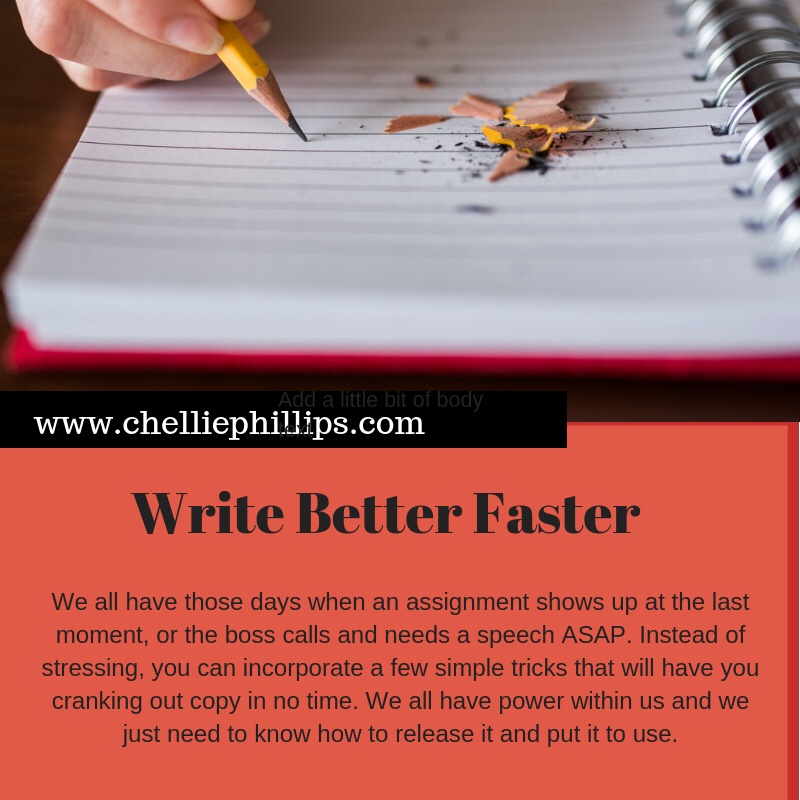
We all have those days when an assignment shows up at the last moment, or the boss calls and needs a speech ASAP. Instead of stressing, you can incorporate a few simple tricks that will have you cranking out copy in no time.
First things first. Just get it on paper and clean it up afterwards. The first draft doesn’t have to be pretty. Once you get it on paper, these simple edits will help you deliver copy designed to persuade and inform your readers.
Mike Long (mikelongonline.com or @mikewrites), an award winning speechwriter, screenwriter and instructor at Georgetown University said this tip hit home after an encounter with a waiter at a fancy restaurant.
“I was at a fancy restaurant,” Long said. “The waiter arrived at the table and noticed sauce on the edge of a plate. He asked to borrow a napkin and proceeded to wipe it off. Then he served it perfect. It was all about the presentation. It doesn’t’ matter how ridiculous it looks until you serve it up. Nobody needs to see it before you send it out. If you’ve watched the movie Super Troopers, you might be surprised to know the version on the screen is 20th draft. If they do that, you can rewrite 3 or 4 times and not feel bad about it.”
When you start editing, just hit the high points first. Get rid of any exclamation points. Write around semi-colons. They feel pretentious. It’s not about the knowledge of the writer. It’s about the knowledge of the reader. Add bullet points to lists. Use commas sparingly. People will find their own pauses.
If you need to cut a piece for length, cut whole paragraphs, not words and sentences.
Long said it’s ok to get rid of whole paragraphs and ideas.
“Say you’ve thoroughly explored three ideas. It’s better to cut out one whole idea instead of leaving pieces of three to meet space limitations. You don’t have to show you are an expert on everything. The only one who will feel it is incomplete will be you. The reader doesn’t know what they don’t know.”
The next step is cleaning up your language. Use literally only when you mean it. Avoid adverbs. If it ends in “ly” cut it. Find a better verb. Avoid adverbs as intensifiers (very, extremely, greatly). Cut introductory adverbs (basically, actually, truthfully).
Need a couple more editing tips? Read your work out loud. You’ll hear things you don’t see. Print it in other fonts and point sizes. The lines will fall in different places and you’ll look at it in different way. You find things that normally don’t stand out to you.
By doing these things, you’ll write cleaner, stronger copy faster.
Most Read, Shared, and Saved Blog Posts of 2025
These are the blog posts you read, shared, saved, and came back to in 2025—some newer, some timeless favorites that continue to strike a chord years later.


